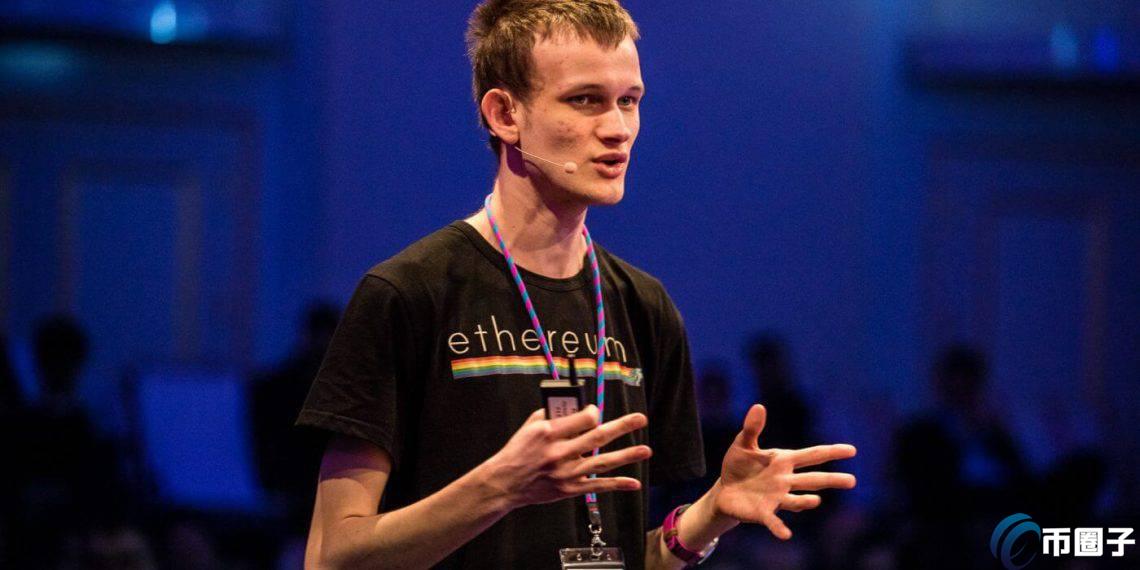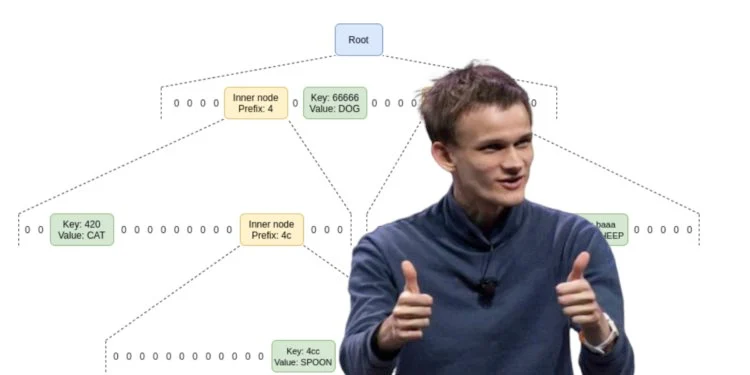 web3.0
web3.0 ETH core developers criticize Ethereum for becoming increasingly centralized! V God proposes 8 major arguments to refute
ETH core developers criticize Ethereum for becoming increasingly centralized! V God proposes 8 major arguments to refute
This site (120bTC.coM): Péter Szilágyi, the head of the Ethereum core development team, recently tweeted to criticize the development direction of Ethereum and expressed concern about Ethereum’s upcoming PeerDAS upgrade. He pointed out that some of the changes covered by the PeerDAS proposal include plans to increase the blob data size to 32MB, which will result in extremely high network bandwidth requirements for block production, possibly reaching 2.5Gbit/s, hindering the participation of home nodes that usually have simpler computing equipment. The Ethereum network, this goes against the decentralized ethos of the blockchain: it's actually killing home stakers, which is not what I expected when I joined Ethereum.
Péter Szilágyi criticized that Ethereum is going astray. The research team has fully accepted all centralized ideas, as long as it can be verified. On the surface it is decentralized verification, but in essence it is centralized control. His This strong wording aroused widespread concern in the Ethereum community and triggered a fierce debate about the core principles of the Ethereum network.
V God’s 8 major clarifications
After Péter Szilágyi’s remarks caused discussion, Ethereum co-founder Vitalik Buterin also responded to his accusations through a series of tweets on the 27th, categorically denying any intention to centralize the Ethereum network. Emphasizing that the Ethereum team has been deeply involved in discussions aimed at minimizing centralization, rather than promoting it.
Vitalik Buterin highlighted several key initiatives and discussions within the Ethereum research community aimed at ensuring that the network remains decentralized, including:
In-depth analysis of multi-proposal systems: The team has been exploring the use of multi-proposal systems potential for a more even distribution of proposal power.
Elimination of builder role: Discussion is ongoing on whether the role of builder can be eliminated to reduce the number of central control points within the network.
Fork selection optimization: There has been an exchange of ideas on the idea of making fork selection dependent on transaction inclusion, which could help increase the decentralization of the block verification process.
Orbit Single-Slot Finality (SSF): Research is ongoing into accelerating the deployment of the Orbit mechanism, which aims to significantly reduce the minimum deposit size of validators and achieve single-slot finality, i.e., within the same time slot Proposing and finalizing blocks, this innovation could significantly increase Ethereum’s efficiency and reduce centralization risks.
PeerDAS’s distributed block construction: The Ethereum team is also exploring PeerDAS’s distributed block construction technology, aiming to distribute control of block construction more broadly.
Network Analysis and Broadband Optimization: Efforts are being made to optimize the network and bandwidth requirements of PeerDAS and fullDAS to ensure that the network can be expanded without centralized control.
Recovering from 51% attacks: The team is working on partially automating recovery from 51% attacks to reduce reliance on the social layer to maintain network resilience without centralized oversight.
Inclusion Lists apply to blobs and transactions: Ensure inclusion lists are fully applicable to blobs and native account abstract transactions, such as the solution proposed in EIP-7560, to maintain transparency and decentralization.
One of the key points of Vitalik Buterin’s rebuttal focused on the concept of single-slot finality (SSF). Currently, Ethereum blocks take about 15 minutes to be finalized, but through SSF, proposals and proposals can be made in the same time slot. Blocks are finalized, significantly reducing finalization time and increasing the overall efficiency of the network.
Overall, SSF is still in the research stage, but its successful implementation is expected to take Ethereum another leap forward, ensuring faster transactions and reducing centralization by minimizing any single entity’s control over block finalization risk.
The above is the detailed content of ETH core developers criticize Ethereum for becoming increasingly centralized! V God proposes 8 major arguments to refute. For more information, please follow other related articles on the PHP Chinese website!
 OKX L2 X Layer上线、手续费采用OKB!潜在5千万用户加入链上应用Apr 17, 2024 am 08:00 AM
OKX L2 X Layer上线、手续费采用OKB!潜在5千万用户加入链上应用Apr 17, 2024 am 08:00 AM本站(120bTC.coM):交易所OKX正式在公开主网上推出其XLayer,有潜力将其庞大的五千万用户引入链上应用,利用L2解决方案提升交易效率并降低成本。XLayer的推出:OKX的新话题OKX推出XLayer,它是一个基于以太坊的零知识L2网络,采用了Polygon开发组件。这个区块链原先以「X1」代号进行测试,并于今正式上线。这是OKX实现其生态系统的一步,据OKX的营运长HaiderRafique所说:「我们将这些L2视为Web3世界的高速公路基础设施」,并强调它在促进新一代去中心化应
 V神对美国《外国情报监视法FISA》702条延长通过表达不满:币圈价值观遭攻击Apr 22, 2024 am 08:19 AM
V神对美国《外国情报监视法FISA》702条延长通过表达不满:币圈价值观遭攻击Apr 22, 2024 am 08:19 AM美国参议院在19日以60比34的票数,批准备受争议的《外国情报监视法》(ForeignIntelligenceSurveillanceAct)第702条款延长2年,该法案已送交给美国总统拜登,在周六签署成为法律。《外国情报监视法》第702条款于2008年通过,允许在国家安全目的下,对美国境外的非美国人进行电子监控,但在监视外国人的同时,通常也会收集该目标与美国公民之间的通讯,且联邦调查局(FBI)等国内执法机构可在无搜查令下查询部分信息,向来被外界抨击侵犯隐私权。美国国安官员认为,延长《外国情报
 V神分享全同态加密研究专文:FHE是什么、能解决Web3隐私难题?May 06, 2024 pm 07:00 PM
V神分享全同态加密研究专文:FHE是什么、能解决Web3隐私难题?May 06, 2024 pm 07:00 PM以太坊共同创办人VitalikButerin近期频频谈论隐私议题,先是为隐私协议Railgun站台,在美国国会上月批准将《外国情报监视法》中的一项争议条款效期延长2年,授权美国情报机构可在无搜索令的情况下监控外国目标后,他又抨击加密货币价值观遭受攻击。而VitalikButerin在5日发推表示,最近很多人对全同态加密(FullyhomomophicEncryption,FHE)技术感兴趣,因此,他重新发表自己在2020年发表的文章,其中深入介绍了FHE的相关数学工作原理。FHE简介Vitali
 Bitwise以太坊ETF将向ETH开发者分润10%!V神:盼公益计划都能受到支持Jul 24, 2024 pm 08:03 PM
Bitwise以太坊ETF将向ETH开发者分润10%!V神:盼公益计划都能受到支持Jul 24, 2024 pm 08:03 PM本站(120bTC.coM):以太坊现货ETF发行商Bitwise在今早透露,将把新推出ETHW基金的10%利润捐赠给以太坊开源开发者,称不能把他们的功劳视为理所当然,此举可谓是TradFi与创新金融科技的友好表现。Bitwise以太坊ETF将向以太坊开发者分润10%Bitwise在23日的推文中宣布推出新的以太坊ETF(代码:ETHW),并详细介绍其特点:基金将直接投资于ETH收取0.20%管理费(前六个月或直到交易量达5亿美元前皆免管理费)10%的基金利润将捐赠给以太坊开源开发者通过基金公开
 女股神预判5月以太坊现货ETF难通过机率下降!Consensys上书SEC主张批准Mar 31, 2024 am 09:51 AM
女股神预判5月以太坊现货ETF难通过机率下降!Consensys上书SEC主张批准Mar 31, 2024 am 09:51 AM网站120BtC.coM报导,VanEck的最终审批期限前,以加密市场为焦点。近日,Blockworks的创办人JasonYanowitz邀请联合申请以太坊现货ETF的ArkInvest执行长CathieWood及21Shares的OpheliaSnyder共同录制Podcast,深入探讨了经历商对于加密货币采用的重要性、比特币ETF的需求前景,以及在不久的将来看到以太币等山寨币ETF的可能性。其中,两人对以太坊现货ETF是否会在5月获得批准存有不同看法。21Shares创办人比CathieWo
 以太坊主网上线9周年!V神带你展望下一个10年Jul 31, 2024 am 08:46 AM
以太坊主网上线9周年!V神带你展望下一个10年Jul 31, 2024 am 08:46 AM本站(120btC.coM):欢庆「以太坊主网上线9周年」之际,共同创办人VitalikButerin今(30)日在以太坊开发者社群大会「EDCON2024」上发表主题演讲,以「超越Web2」为以太坊的下一个10年定调。以太坊创世区块诞生于美国东部时间2015年7月30日,外媒《CoinDesk》当时评论称:「规模宏大、设计灵活,它的目标是囊括去中心化网络上几乎所有的事物。」然而,这篇文章同时也掺杂着怀疑论者的意见,批评以太坊「不成熟」、「野心太高太大」,并表示它「仍然还有许多需要被证明的地方」
 Dragonfly领投、V神参投!新公链MegaETH获2000万美元融资Jun 28, 2024 pm 05:47 PM
Dragonfly领投、V神参投!新公链MegaETH获2000万美元融资Jun 28, 2024 pm 05:47 PMMegaETH宣布获得2,000万美元种子轮融资1.提升区块链可扩展性MegaETH,专注于解决区块链可扩展性挑战的新公链项目,日前宣布成功获得2,000万美元种子轮融资。2.投资者阵容此轮融资由Dragonfly领投,估值至少1亿美元。天使投资人包括以太坊共同创办人VitalikButerin等。3.团队背景MegaETH由MegaLabs开发,共同创办人兼商务长孔舒瑶曾担任Consensys顾问和前全球业务开发主管。4.MegaETH技术MegaETH结合以太坊的安全性、Optimism的欺
 V神大赞的Verkle Trees是什么?目标今年上线以太坊主网Feb 20, 2024 pm 03:24 PM
V神大赞的Verkle Trees是什么?目标今年上线以太坊主网Feb 20, 2024 pm 03:24 PM以太坊共同创始人VitalikButerin在19日发推文表示,对VerkleTrees在以太坊中的潜在益处充满期待。他指出,Verkle树的应用将使得无状态验证客户端成为可能,这意味着验证节点在几乎不占用硬盘空间的情况下可以运行,并且能够几乎实时同步。VerkleTrees是什么?币圈大家可能更为熟悉的是默克尔树(MerkleTree),而VerkleTree则是此技术的一种进化形式,旨在提高数据储存和索引的效率。VerkleTrees通过使用向量承诺(vectorcommitments)和其

Hot AI Tools

Undresser.AI Undress
AI-powered app for creating realistic nude photos

AI Clothes Remover
Online AI tool for removing clothes from photos.

Undress AI Tool
Undress images for free

Clothoff.io
AI clothes remover

AI Hentai Generator
Generate AI Hentai for free.

Hot Article

Hot Tools

Safe Exam Browser
Safe Exam Browser is a secure browser environment for taking online exams securely. This software turns any computer into a secure workstation. It controls access to any utility and prevents students from using unauthorized resources.

SublimeText3 Linux new version
SublimeText3 Linux latest version

SublimeText3 Chinese version
Chinese version, very easy to use

Notepad++7.3.1
Easy-to-use and free code editor

SublimeText3 Mac version
God-level code editing software (SublimeText3)





